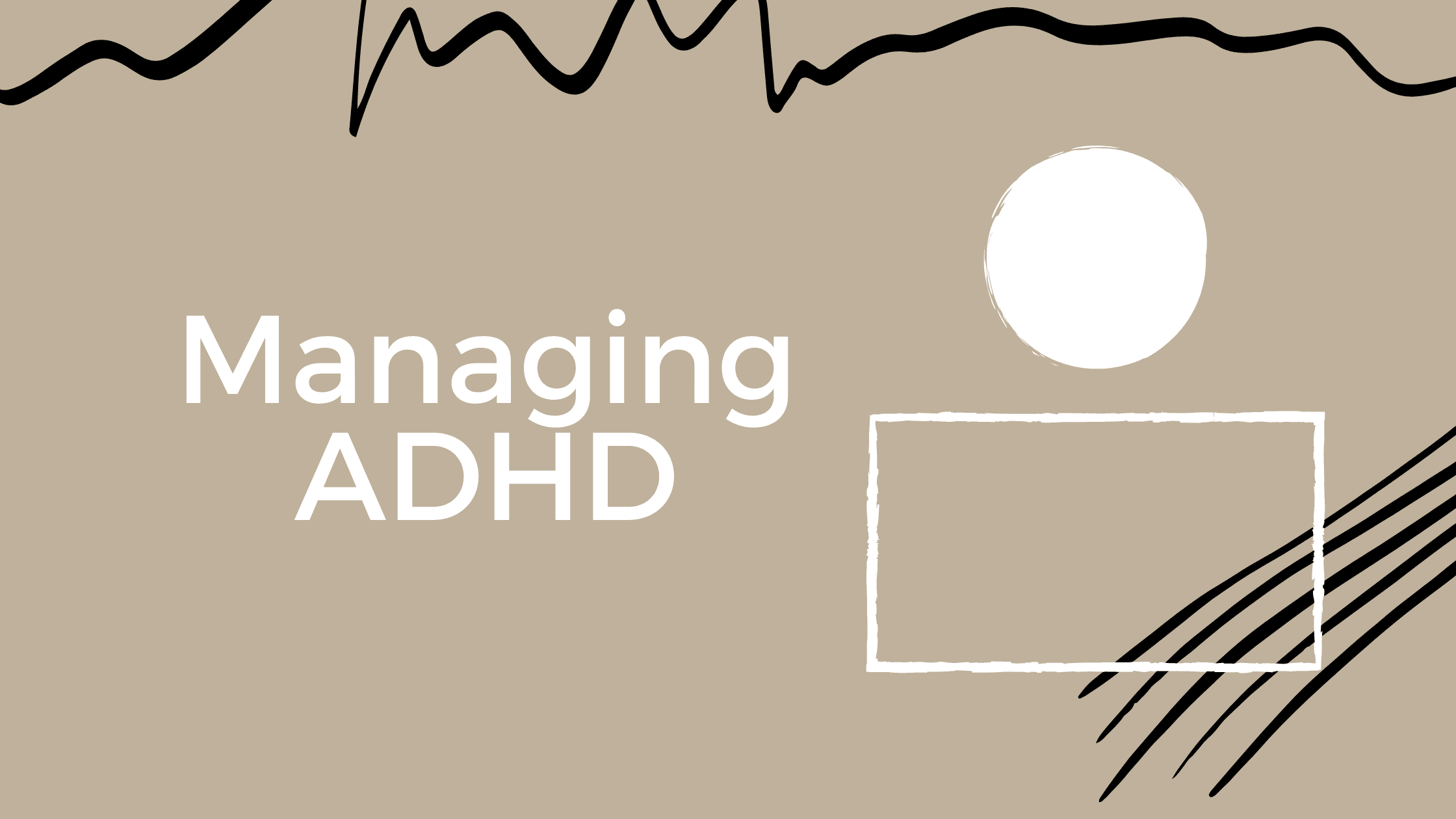Discover The Comprehensive Guide To Understanding And Managing ADHD
Editor's Note: "Discover The Comprehensive Guide To Understanding And Managing ADHD" have published today date because Understanding and managing ADHD can be a challenge, but it's one that can be overcome with the right knowledge, tools, and support.
In this Discover The Comprehensive Guide To Understanding And Managing ADHD guide, we'll explore the latest research on ADHD, including its causes, symptoms, and treatment options. We'll also provide practical tips and strategies for managing ADHD in everyday life.
Whether you're an adult with ADHD, a parent of a child with ADHD, or simply someone who wants to learn more about this condition, this guide is for you.
- ADHD is a neurodevelopmental disorder that affects attention, focus, and behavior.
- There are three main types of ADHD: inattentive type, hyperactive-impulsive type, and combined type.
- ADHD is often treated with medication and behavioral therapy.
- There are many things that people with ADHD can do to manage their symptoms, such as exercise, diet, and sleep.
- ADHD is a lifelong condition, but it can be managed with the right treatment and support.

Managing Adult ADHD - Tips to Help You - Source careclinic.io
- What is ADHD?
- What are the symptoms of ADHD?
- What are the causes of ADHD?
- How is ADHD diagnosed?
- How is ADHD treated?
- What are the resources available for people with ADHD?
ADHD is a complex condition, but it can be managed with the right treatment and support. If you think you or your child may have ADHD, talk to your doctor. Early diagnosis and treatment can make a big difference in the lives of people with ADHD.
FAQ
This comprehensive guide delves into the complexities of Attention Deficit Hyperactivity Disorder (ADHD), offering a thorough understanding of its multifaceted nature. Here, we address prevalent queries and debunk prevailing misconceptions.
Question 1: Is ADHD solely characterized by hyperactivity and impulsivity?
ADHD manifests in a range of symptoms, including difficulty sustaining attention, excessive fidgeting, and impulsive behaviors. These symptoms may vary in severity and presentation depending on the individual.
Question 2: Can ADHD be diagnosed in adults?
Absolutely. ADHD is a neurodevelopmental disorder that persists throughout the lifespan. However, symptoms may evolve with age, leading to different manifestations in adulthood.
Question 3: Is medication the only treatment option for ADHD?
While medication is a common treatment approach, it is not the sole option. Therapy, behavioral interventions, and lifestyle adjustments can also effectively manage ADHD symptoms and improve daily functioning.
Question 4: Will children with ADHD outgrow the condition?
Although symptoms may diminish with age, ADHD typically persists into adulthood. However, early diagnosis and appropriate interventions can significantly improve outcomes and support individuals in reaching their full potential.
Question 5: Can diet and supplements help manage ADHD?
Research on the role of diet and supplements in managing ADHD is inconclusive. While certain dietary modifications and supplements may provide some benefits, there is no substitute for evidence-based treatments.
Question 6: How can I support someone with ADHD?
Understanding their challenges, providing emotional support, and encouraging their efforts are crucial. Collaboration with healthcare professionals and educators can ensure comprehensive care and foster a positive and empowering environment.
Remember, managing ADHD requires a multifaceted approach that addresses the individual's unique needs. Education, evidence-based interventions, and ongoing support are essential in empowering individuals with ADHD to thrive in all aspects of life.
For further exploration, refer to our guide's detailed sections covering the causes, diagnosis, and diverse treatment options for ADHD.
Tips for Managing ADHD
Attention Deficit Hyperactivity Disorder (ADHD) is a common neurodevelopmental condition that affects millions of people worldwide. It can cause a range of symptoms, including difficulty paying attention, hyperactivity, and impulsivity. While there is no cure for ADHD, there are a number of effective treatments that can help to manage the symptoms and improve quality of life. Discover The Comprehensive Guide To Understanding And Managing ADHD provides a wealth of information about ADHD, including its causes, symptoms, and treatments.
Tip 1: Establish a regular routine.
People with ADHD often benefit from having a regular routine that provides structure and predictability. This can help to reduce symptoms of hyperactivity and impulsivity, and make it easier to pay attention. A regular routine may include set times for waking up, going to bed, eating meals, and doing homework or work.
Tip 2: Create a calming environment.
A chaotic or stimulating environment can make it difficult for people with ADHD to focus and control their impulses. Creating a calming environment can help to reduce these symptoms. This may involve reducing noise levels, minimizing distractions, and using calming colors and lighting.
Tip 3: Break down tasks into smaller steps.
People with ADHD often find it difficult to stay focused on tasks that are complex or require a lot of steps. Breaking down tasks into smaller, more manageable steps can make them seem less daunting and easier to complete.
Tip 4: Use a timer to stay on task.
A timer can help people with ADHD to stay on task and avoid distractions. Set a timer for a specific amount of time and work on the task until the timer goes off. This can help to improve focus and productivity.
Tip 5: Take breaks.
People with ADHD often need to take breaks more frequently than others. If you feel yourself getting distracted or overwhelmed, take a short break to clear your head and come back to the task refreshed.
Tip 6: Get regular exercise.
Exercise can help to improve focus, attention, and behavior in people with ADHD. Aim for at least 30 minutes of moderate-intensity exercise most days of the week.
Tip 7: Eat a healthy diet.
Eating a healthy diet can help to improve overall health and well-being, which can also benefit people with ADHD. Focus on eating plenty of fruits, vegetables, and whole grains, and limit your intake of processed foods, sugary drinks, and unhealthy fats.
Tip 8: Get enough sleep.
When you don't get enough sleep, you may find it more difficult to focus and control your impulses. Aim for 7-8 hours of sleep each night.
These are just a few tips for managing ADHD. There is no one-size-fits-all approach, so it is important to experiment with different strategies to find what works best for you. With the right treatment, people with ADHD can learn to manage their symptoms and live full and productive lives.
Discover The Comprehensive Guide To Understanding And Managing ADHD
Attention Deficit Hyperactivity Disorder (ADHD) is a neurodevelopmental condition that affects millions of children and adults worldwide. Understanding and effectively managing ADHD requires a comprehensive approach that encompasses various aspects. This guide aims to provide an overview of six key elements that play a crucial role in comprehensive ADHD management.
- Diagnosis: Accurate diagnosis is essential to identify the symptoms, rule out other conditions, and develop an appropriate treatment plan.
- Medication: Medications such as stimulants and non-stimulants can help improve focus, reduce hyperactivity and impulsivity, and enhance cognitive function.
- Therapy: Behavioral therapy, cognitive behavioral therapy, and social skills training can help individuals develop coping mechanisms, improve self-regulation, and enhance social interactions.
- Education: Educating individuals with ADHD and their families about the condition, its symptoms, and management strategies empowers them to make informed decisions and advocate for their needs.
- Support: Social support from family, friends, teachers, and therapists can provide a positive and encouraging environment that promotes adherence to treatment and overall well-being.
- Lifestyle: Healthy lifestyle choices, including regular exercise, a balanced diet, and adequate sleep, can positively impact ADHD symptoms and overall health.
Understanding and managing ADHD effectively involves a comprehensive approach that combines medical, therapeutic, educational, and lifestyle interventions. By addressing these key aspects, individuals with ADHD can improve their quality of life, develop their full potential, and thrive in various aspects of their lives.

ADHD - MorgaineMivaan - Source morgainemivaan.blogspot.com

Unveiling the Role of an ADHD Coach: A Comprehensive Guide - All For - Source www.allfornewbies.com
Discover The Comprehensive Guide To Understanding And Managing ADHD
Attention Deficit-Hyperactivity Disorder, or ADHD, is a neurodevelopmental condition characterized by difficulty paying attention, hyperactivity, and impulsivity. It affects millions of children and adults worldwide. This comprehensive guide provides an in-depth understanding of ADHD, its causes, symptoms, and treatment options.

Demystifying ADHD Assessment: A Comprehensive Guide to SASI Scoring - Source adhd-remedies.com
Understanding ADHD is crucial for effective management. This guide offers a thorough examination of the condition, including its neurobiological basis, genetic factors, and environmental triggers. By gaining knowledge about the causes and symptoms of ADHD, individuals can better understand the challenges faced and implement appropriate strategies to cope.
Practical significance of this understanding lies in the ability to develop tailored interventions and support systems for individuals with ADHD. The guide provides evidence-based recommendations for managing symptoms, including behavioral therapy, medication, and lifestyle modifications. By implementing these strategies, individuals can improve attention, reduce hyperactivity, and enhance overall functioning.
| Key Insights | Practical Applications |
|---|---|
| ADHD is a neurodevelopmental condition with genetic and environmental influences. | Understanding the causes can inform targeted interventions and support systems. |
| Symptoms of ADHD include difficulty paying attention, hyperactivity, and impulsivity. | Identifying symptoms allows for early detection and appropriate management. |
| Treatment options for ADHD include behavioral therapy, medication, and lifestyle modifications. | Tailoring interventions to individual needs can enhance outcomes and improve quality of life. |
Conclusion
This comprehensive guide empowers individuals with ADHD and their support systems with the knowledge and tools necessary for effective management. By understanding the underlying causes, recognizing symptoms, and implementing evidence-based strategies, individuals can navigate challenges associated with ADHD and achieve their full potential.
Ongoing research and advancements in ADHD management continue to provide hope for improved outcomes. By staying informed and seeking professional support, individuals with ADHD can lead fulfilling and productive lives.
The Sackler Family: A Legacy Of Wealth, Influence, And Opioid Crisis, Discover The Enchanting Allure Of Italy: Unveil Its Art, History, And Culinary Delights, Sheffield United Takes On Hull City In A Crucial Championship Clash, Unleash Unmatched Performance: The Ultimate Guide To NVIDIA Graphics Card Pricing, Plane Crash In Washington: Tragedy And Investigation, Essential Guide To Vehicle Registration For Enhanced Convenience And Legal Compliance, Decretan Feriado: Celebrate National Unity Day In The Dominican Republic, Clash Of The Titans: Manchester City And Chelsea Face Off In High-stakes Premier League Showdown, Al Qadisiya Vs. Al-Hilal: Saudi Pro League Clash Of Titans, Lecce Vs. Inter: Serie A Clash Between Underdogs And Champions,